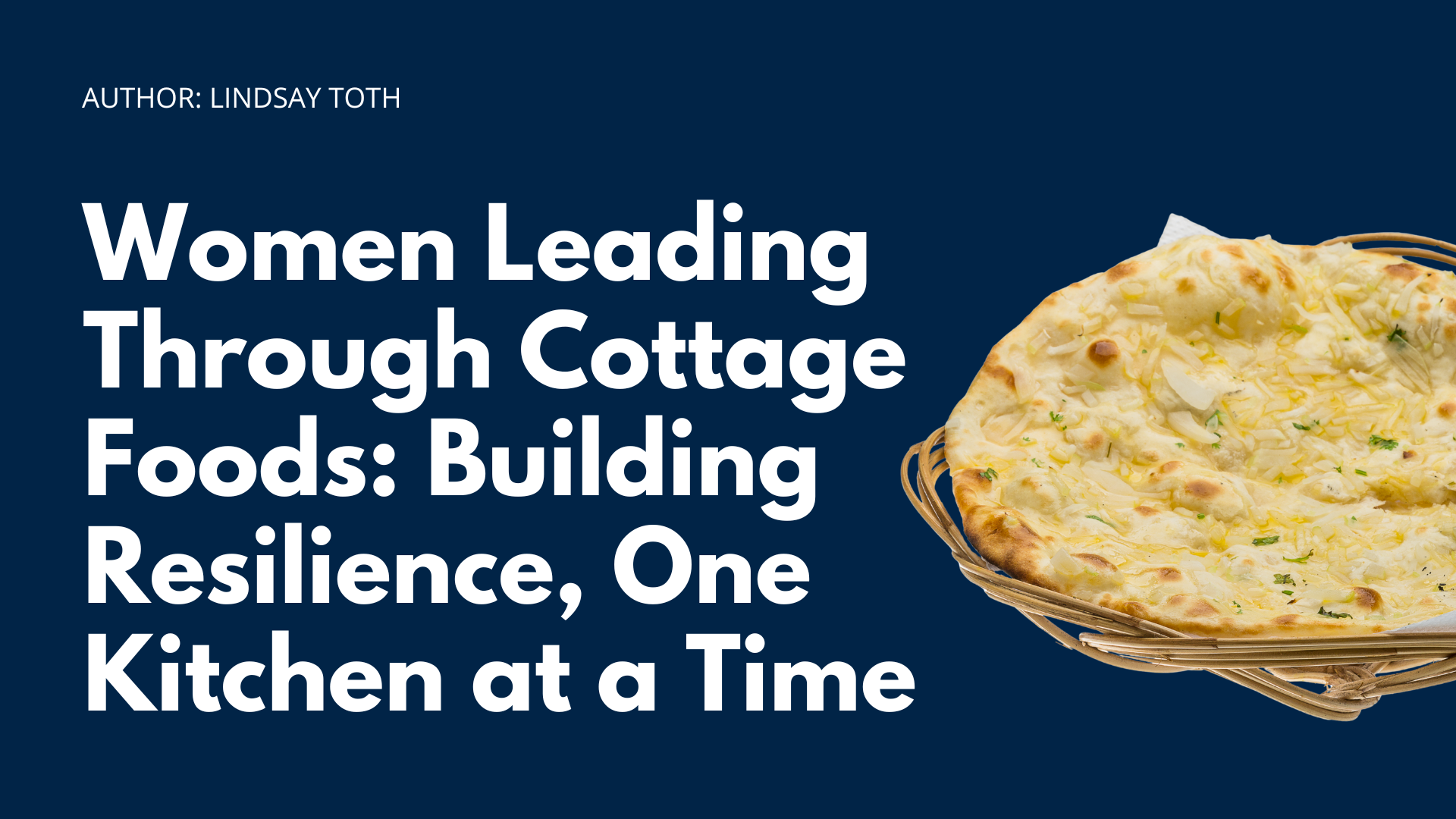Women Leading Through Cottage Foods: Building Resilience, One Kitchen at a Time
By: Lindsay Toth
Cottage food businesses are more than side hustles or kitchen experiments. They are powerful entry points into food entrepreneurship and food sovereignty. Across Canada, women are leading the charge, transforming home kitchens into places of innovation, cultural preservation, and community building.
For many women, the cottage food model offers a chance to balance economic opportunity with family and community life. It removes some of the traditional barriers to entry such as costly commercial kitchens and allows people to test, refine, and share their products in accessible ways.
A Platform for Diverse Voices
Women from all walks of life are using cottage foods as a platform to showcase unique culinary traditions and create meaningful change in their communities:
Newcomer women bring flavours from their home countries, sharing cultural foods that introduce Canadians to global traditions while also creating new sources of income for their families.
Rural women use access to farm-fresh ingredients to create value-added products like preserves, baking, and specialty mixes that extend the life and profitability of what they grow.
Mothers and caregivers build businesses that are flexible yet impactful, finding ways to blend entrepreneurship with family responsibilities.
Indigenous Women at the Heart of Food Sovereignty
For Indigenous women, cottage food businesses hold particular significance. These enterprises are not only about entrepreneurship. They are pathways to reclaim food sovereignty and protect ancestral knowledge.
Reviving traditional foods: By preparing bannock, wild berry jams, dried meats, or teas, Indigenous women keep cultural practices alive while sharing them with a wider audience.
Teaching through food: Recipes are more than instructions. They are oral histories. Passing them on through cottage businesses ensures that language, tradition, and values are embedded in every bite.
Strengthening local economies: In many Indigenous communities, cottage foods represent opportunities to build sustainable, community-based economies that circulate wealth locally rather than externally.
Overcoming Barriers Together
Despite their potential, cottage food businesses are not without challenges. Access to consistent regulations, funding, and markets remain hurdles across Canada. Women are leading solutions by forming cooperatives, building networks, and advocating for clearer legislation that protects both consumers and entrepreneurs.
When women work together across cultures, geographies, and generations, they create resilient food systems that are stronger, more diverse, and deeply rooted in community values.
Looking Forward
Cottage foods are not just about baking bread or making jam. They are about women reclaiming space in the food economy, asserting their right to create, to lead, and to nourish. For Indigenous women, this work is an act of cultural resilience. For newcomers, it is a bridge between past and present. For all women, it is a testament to the power of food to build futures that are sustainable, inclusive, and deeply connected to community.






